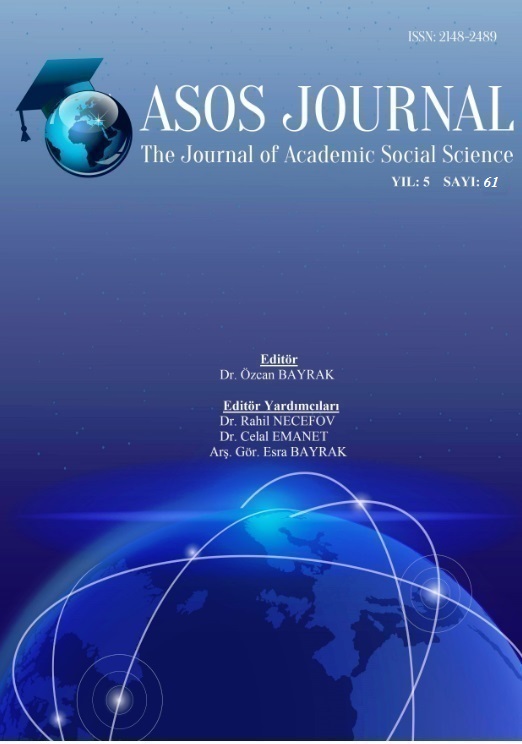Author :
Abstract
11 Eylül saldırıları eski bir edebi türün yeniden canlanmasına yol açtı: kıyamet sonrası roman. Yayımlanan kitap ve filmlerin nicelik olarak fazla olması; yaşanan şok, korku, endişe ve yasın uzun süreli olması olaya tanıklık eden pek çok kişinin saldırıları –olayın kendisi gibi– “kıyamet” olarak algılamasına sebep oldu. Amerikalı yazar Cormac McCarthy, onuncu romanı The Road (Yol)’da çok sayıda kişinin deneyimini yansıttı. Yazarın gözünde artık apokaliptik imgelem dahi farklıdır ve bundan böyle “artık hiçbir şey eskisi gibi olmayacak” söylemi akıllara kazınmıştır. Saldırılara ek olarak, ilerleyen dönemde başlayan Irak Savaşı korku ve şokun devam etmesine sebep olmuştur. Bu makale, Cormac McCarthy’nin bahsedilen romanının 11 Eylül saldırıları sonrası Amerikan toplumunda yaşanılan psikolojik ve sosyolojik değişiklikleri nasıl ele aldığını değerlendirmektedir.
Keywords
Abstract
The events of September 11 has revived an earlier literary genre: the post-apocalyptic novel. The quantity of the films and novels produced shows the shock, fear, anxiety, grief has been long-termed and that resulted in many people’s naming their experience as ‘apocalyptic’, like the attack itself. American author Cormac McCarthy has echoed the feelings of many in his tenth novel The Road. The author even believes that the apocalyptic imagination is now different as the sense ‘nothing will be the same again’ has been engraved on the minds. In addition to the attacks, the Iraq War in the following months contributed to the immense awe and shock. This article examines how Cormac McCarthy’s novel reveals the psychological and sociological changes in American society following the attacks in 2001.





